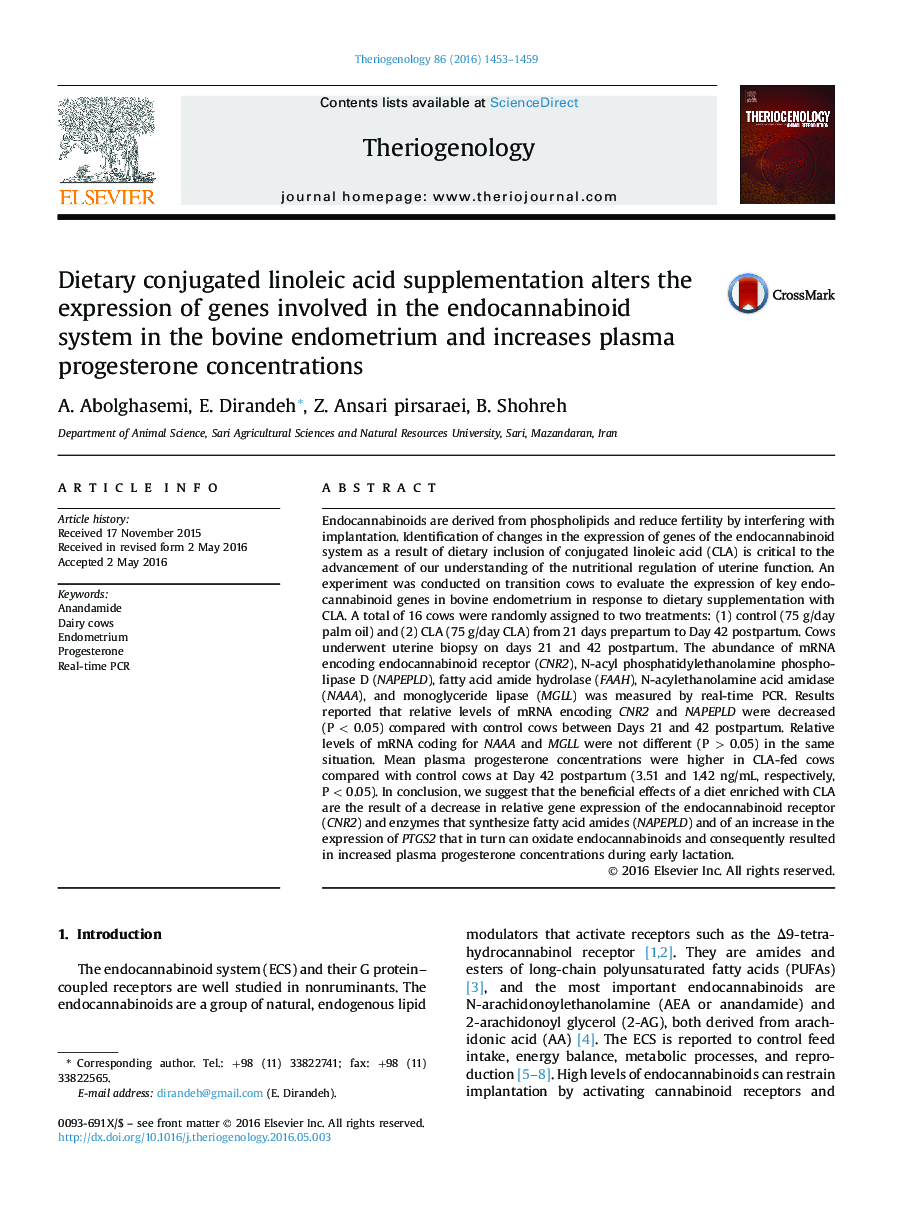| Article ID | Journal | Published Year | Pages | File Type |
|---|---|---|---|---|
| 2094681 | Theriogenology | 2016 | 7 Pages |
Endocannabinoids are derived from phospholipids and reduce fertility by interfering with implantation. Identification of changes in the expression of genes of the endocannabinoid system as a result of dietary inclusion of conjugated linoleic acid (CLA) is critical to the advancement of our understanding of the nutritional regulation of uterine function. An experiment was conducted on transition cows to evaluate the expression of key endocannabinoid genes in bovine endometrium in response to dietary supplementation with CLA. A total of 16 cows were randomly assigned to two treatments: (1) control (75 g/day palm oil) and (2) CLA (75 g/day CLA) from 21 days prepartum to Day 42 postpartum. Cows underwent uterine biopsy on days 21 and 42 postpartum. The abundance of mRNA encoding endocannabinoid receptor (CNR2), N-acyl phosphatidylethanolamine phospholipase D (NAPEPLD), fatty acid amide hydrolase (FAAH), N-acylethanolamine acid amidase (NAAA), and monoglyceride lipase (MGLL) was measured by real-time PCR. Results reported that relative levels of mRNA encoding CNR2 and NAPEPLD were decreased (P < 0.05) compared with control cows between Days 21 and 42 postpartum. Relative levels of mRNA coding for NAAA and MGLL were not different (P > 0.05) in the same situation. Mean plasma progesterone concentrations were higher in CLA-fed cows compared with control cows at Day 42 postpartum (3.51 and 1.42 ng/mL, respectively, P < 0.05). In conclusion, we suggest that the beneficial effects of a diet enriched with CLA are the result of a decrease in relative gene expression of the endocannabinoid receptor (CNR2) and enzymes that synthesize fatty acid amides (NAPEPLD) and of an increase in the expression of PTGS2 that in turn can oxidate endocannabinoids and consequently resulted in increased plasma progesterone concentrations during early lactation.
